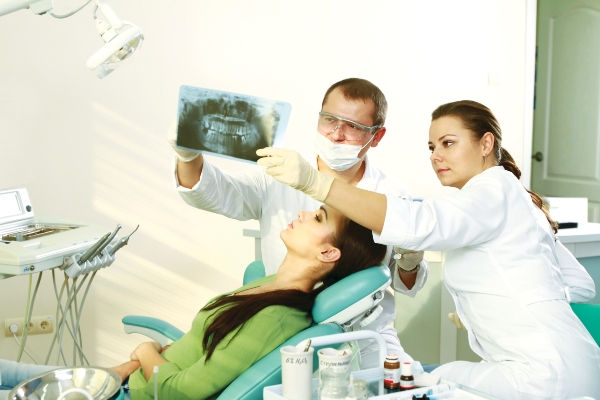 For individuals who need to restore or replace damaged or missing teeth, dental implants are lasting, high-quality restoration options. The process can be lengthy from start to finish, but this dental appliance gives patients results worth waiting for. However, without the right aftercare, an infection can form and cause extreme discomfort to a patient. Proper dental hygiene and prevention efforts can reduce the likelihood of infection setting in.
For individuals who need to restore or replace damaged or missing teeth, dental implants are lasting, high-quality restoration options. The process can be lengthy from start to finish, but this dental appliance gives patients results worth waiting for. However, without the right aftercare, an infection can form and cause extreme discomfort to a patient. Proper dental hygiene and prevention efforts can reduce the likelihood of infection setting in.
Who needs dental implants?
For adults who have experienced tooth loss as a result of mouth trauma, infection, decay, or another reason, implants are alternatives to bridges and dentures. Adolescents who have gone through the phase of facial development, generally past the age 16 for girls and 18 for boys, may also be good candidates. These appliances are designed to last for many decades, protect healthy teeth and facial bones, and provide a permanent tooth replacement option.
How can infections be prevented?
As with any treatment or procedure, following the instructions of the care provider is crucial for avoiding complications. With implants, these four tips can reduce the chance of developing an infection as the wound in the mouth heals, second to the dental professional's advice.
1. Rinse regularly
The mouth is a gathering place for bacteria, and removing plaque is one of the reasons teeth brushing is so important. During the healing after the implant procedure, there is a greater concern that bacteria can form inside the wound and cause infection. Thoroughly rinsing the mouth out helps keep the wound and mouth free from harmful germs. Saltwater or mouthwash are both effective in keeping the area clean.
2. Keep up with dental hygiene
Even without implants, it is recommended that good oral hygiene include brushing and flossing at least twice a day. In the days immediately following the procedure, brushing must be gentle near the area around the wound. However, do not avoid brushing, as the surrounding teeth could harbor bacteria or particles that can cause infection. Flossing is also important, as this process removes particles trapped between the teeth.
3. Maintain dental checkups
The provider who placed the dental implants will give a schedule of when to visit the office for a checkup. The wound will be evaluated to ensure that bacteria are not forming, and in addition to preventative measures, a patient may be prescribed a medication to address signs of infection.
4. Avoid damaging foods
As far as dental health is considered, food and drinks that are high in sugar should be avoided. Sugary substances increase the amount of bacteria that gets trapped in hard-to-reach places, increasing the threat of infection. Rinsing directly after consuming foods high in sugar can help reduce the risk.
Conclusion
Dental implants are a reliable way to restore uniformity, function, and beauty to a mouth with lost teeth, but an infection can make the healing process more difficult. It is much easier to adopt healthy oral hygiene habits to prevent the risk of infection, rather than trying to deal with the pain and process of clearing one up.
Request an appointment or call Frankford Dental Care at 215-302-1746 for an appointment in our Philadelphia office.
Recent Posts
Not only does replacing missing teeth restore the smile’s appearance, but it also enhances oral health and helps preserve the jawbone. Dental implants are a reliable, durable solution for patients who require multiple tooth replacements, as they provide stability and a natural look and feel. There is more than one implant option available, with each…
Dental implants can provide a long-lasting solution for tooth loss. Many people choose this option because it looks and feels natural. Understanding the purpose of dental implants and how they work is key to helping you decide if dental implants are right for you.Dental implants are small titanium posts placed into the jawbone to replace…
If you have missing teeth, there are multiple replacement options from which you can choose. Dental implants are one, and they are a popular choice for various reasons. Although implants may be an effective treatment method, they are not for everyone. Therefore, you should consider the benefits and other information before making a decision.The implant…


